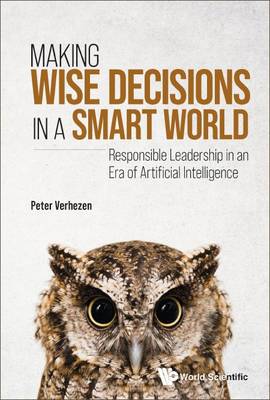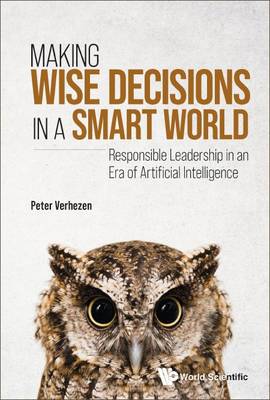
Bedankt voor het vertrouwen het afgelopen jaar! Om jou te bedanken bieden we GRATIS verzending (in België) aan op alles gedurende de hele maand januari.
- Afhalen na 1 uur in een winkel met voorraad
- In januari gratis thuislevering in België
- Ruim aanbod met 7 miljoen producten
Bedankt voor het vertrouwen het afgelopen jaar! Om jou te bedanken bieden we GRATIS verzending (in België) aan op alles gedurende de hele maand januari.
- Afhalen na 1 uur in een winkel met voorraad
- In januari gratis thuislevering in België
- Ruim aanbod met 7 miljoen producten
Zoeken
Making Wise Decisions in a Smart World: Responsible Leadership in an Era of Artificial Intelligence
Peter Verhezen
Hardcover | Engels
€ 103,95
+ 207 punten
Omschrijving
Good and smart decisions should be distinguished from wise decision-making -- especially in the age of artificial intelligence (AI) where algorithms are increasingly used to automate business processes or to augment the accuracy and speed of decisions. This book argues why specific forms of intelligence as well as consciousness and enhanced conscience are crucial to make wise decisions -- with consciousness to be clearly distinguished from intelligence. It also addresses why machine learning and smart computers (AI) are plausibly able to make 'smart' (and thus to a certain extent 'intelligent') decisions but definitely unable to help us to become wiser. In essence, optimizing a desired output in a business context will require a balanced approach with cognitive awareness and ethical reflection -- synthesizing intuitive and algorithmic thinking -- encompassing short-term profit and longer-term envisioning, and aiming to optimize created and captured value for shareholders while taking the concerns of those who have a real stake in the organization seriously. If business is about creating and sharing value in a future that is both 'digital' and 'relational', then innovative technologies like AI will play an increasingly important role. Consequently, mindful executives and their responsible boards therefore need to acknowledge the limitations of AI in business -- especially when the uncertain future is estimated to be rather volatile or ambiguous than stable.
Specificaties
Betrokkenen
- Auteur(s):
- Uitgeverij:
Inhoud
- Aantal bladzijden:
- 480
- Taal:
- Engels
Eigenschappen
- Productcode (EAN):
- 9789811268052
- Verschijningsdatum:
- 12/05/2023
- Uitvoering:
- Hardcover
- Formaat:
- Genaaid
- Afmetingen:
- 152 mm x 229 mm
- Gewicht:
- 802 g

Alleen bij Standaard Boekhandel
+ 207 punten op je klantenkaart van Standaard Boekhandel
Beoordelingen
We publiceren alleen reviews die voldoen aan de voorwaarden voor reviews. Bekijk onze voorwaarden voor reviews.









